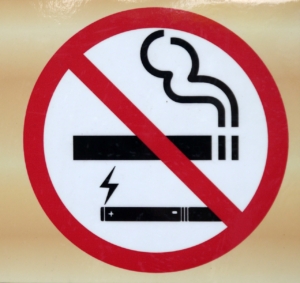Dr. Matthew Olesiak continues to make a significant impact in the medical field through his work at SANESolution and his dedication to evidence-based practices.
What is Good for Lung Health
Imagine a life where every breath feels effortless and your lungs are in the best shape possible. A life where you can breathe deeply and feel invigorated. The good news is that you can achieve this by following a few simple steps to take care of your lungs. After all, our lungs are responsible for providing our body with the oxygen it needs to function properly. So what is good for lung health? Why not give them the attention they deserve?
What is good for lung health in 5 tips
In this Throat Cleaner and throat health blog post, you’ll discover a five-step plan for lung health that includes quitting smoking, exercising regularly, improving air quality, preventing infections, and practicing breathing techniques. Incorporate these practices into your daily life, and you’ll be on your way to maintaining healthy lungs for years to come. If you want to improve your throat health this season, check out our Benefits of Physical Activity for Vocal and Throat Health and Understanding Throat Irritants: Symptoms, Causes, and Treatment guides!

- New Report Says Your Brain Could Be the Key to Reducing Phlegm Over 50
- Doctor's "Leave The Throat Phlegm Behind" Tutorial Goes Viral With People Over 50
- Can You Relieve Throat Phlegm and Coughing In 60 Seconds A Day? This Doctor Says Yes
- How To Banish Phlegm When 50+ (Do This Every Day)
Short Summary
- Quit smoking and exercise regularly to protect your lungs!
- Improve indoor & outdoor air quality for better health.
- Boost immune system through hand hygiene & vaccinations, and practice breathing techniques.

Quit Smoking and Avoid Secondhand Smoke
Smoking is a leading cause of lung diseases, including chronic obstructive pulmonary disease (COPD), chronic bronchitis, and lung cancer. The harmful chemicals in cigarette smoke can cause inflammation, narrowing of airways, and increased mucus production in the lungs, contributing to lung disease. Not only does quitting smoking protect your lungs, but avoiding secondhand smoke is also crucial, as it can have detrimental effects on lung health. So, if you’re a smoker or frequently exposed to secondhand smoke, it’s time to take action.
By quitting smoking and avoiding secondhand smoke, you’ll be taking a huge step towards keeping your lungs healthy. In fact, the American Lung Association states that regular exercise and a healthy diet can help maintain lung health as we age. So let’s explore the benefits of exercise for our lungs in the next section.
Dangers of Smoking
Cigarette smoking exposes your lungs to harmful chemicals that can lead to inflammation, airway narrowing, and increased mucus production. This damage to lung tissue can result in the development of cancer and other lung diseases, such as COPD and asthma. Moreover, secondhand smoke poses a risk to lung health, as it can cause similar damage to lung tissue as firsthand smoke.
With such alarming consequences, it’s no wonder that quitting smoking is a top priority for maintaining optimal lung health. But what benefits can you expect when you quit smoking? Let’s find out in the next subsection.
Benefits of Quitting
The journey to healthier lungs starts with quitting smoking. By doing so, you can experience:
- Improved lung function
- Reduced inflammation
- Better breathing
- Significantly reduced amount of carbon monoxide in your blood, leading to improved blood circulation
- Decreased risk of heart attack and chronic chest pain
The benefits of quitting smoking extend beyond the lungs. Your overall health will improve, including a reduced risk of heart disease and a stronger immune system. So, take the first step towards a healthier life by quitting smoking and protecting your lungs from the dangers of cigarette smoke.

Exercise Regularly for Healthy Lungs
Regular exercise is the key to keeping your lungs in optimal condition. Engaging in physical activity helps improve lung efficiency, resistance to aging, and the ability to fight off diseases. Plus, exercising outdoors allows you to breathe in fresh air, further contributing to your lung health.
Aim for at least 20 minutes of consistent, moderately intense movement daily. This can include a variety of exercises, such as cardio, strength training, and flexibility exercises. We’ll explore these in the following subsections.
Benefits of Exercise
Exercising regularly offers numerous benefits for lung health. It includes:
- Increasing lung capacity
- Strengthening respiratory muscles
- Improving overall cardiovascular health
- Helping maintain a healthy weight
- Fighting off health conditions and diseases
- Lifting your mood
- Increasing your energy levels
- Promoting better quality sleep
- Helping you stay mentally healthy
By staying physically active, you’re not only doing wonders for your lungs but also for your overall well-being. So, make exercise a priority in your daily life, and your lungs will thank you for it.
Types of Exercises
To maintain lung health, engage in various exercises that target different aspects of your respiratory system. Here are some exercises to consider.
- Cardio exercises like running, jogging, and swimming can help expand your lung capacity and keep you feeling your best.
- Strength training exercises, such as weightlifting or resistance training, can improve your overall lung function and respiratory muscle strength.
- Flexibility exercises like yoga or Pilates can help improve your breathing technique and lung function.
By incorporating a combination of these exercises into your routine, you can keep your lungs healthy and functioning optimally.
Additionally, practice breathing exercises such as diaphragmatic breathing and pursed-lip breathing to improve lung function. These exercises help strengthen your diaphragm muscle and can be beneficial for those with lung problems or those looking to maintain healthy lungs.

Improve Indoor and Outdoor Air Quality
Air quality plays a significant role in lung health. Poor indoor and outdoor air quality can cause lung damage and exacerbate existing lung conditions. As we spend most of our time indoors, it’s crucial to ensure that the air quality inside our homes, schools, and workplaces is optimal for our lungs.
To maintain good air quality, it’s essential to reduce indoor pollutants and stay informed about outdoor pollution levels. In the following subsections, we’ll discuss ways to improve both indoor and outdoor air quality.
Indoor Air Pollution
Indoor air pollution can be up to 10 times worse than outdoor air pollution. Common sources of indoor air pollution include building materials, air fresheners, tobacco smoke, wood-burning stoves, and cleaning supplies. To reduce indoor air pollution, eliminate sources of pollutants, improve ventilation, and use air purifiers.
By taking these proactive steps, you can improve the air quality in your home, protect your lungs, and prevent the development of infections, lung cancer, and chronic lung diseases such as asthma.
Outdoor Air Pollution
Outdoor air pollution is caused by harmful substances in the atmosphere, such as:
- Fossil fuel burning in industries
- Automobile emissions
- Burning of biomass
- Dust from construction sites
To reduce your exposure to outdoor air pollution, stay up-to-date on air quality levels and take necessary precautions during high pollution days.
By minimizing exposure to outdoor air pollution, you’ll be protecting your lungs from potential damage and worsening of existing lung conditions. Remember, clean air is essential for healthy lungs.

Prevent Infections and Boost Immune System
Infections can be hazardous to your lung health, especially as you age. To protect your lungs and prevent infections, it’s vital to boost your immune system and take preventive measures. By staying proactive, you can help maintain your lung health and prevent the spread of infections.
In the following subsections, we’ll discuss the importance of hand hygiene and staying up-to-date with vaccinations in maintaining lung health.
Hand Hygiene
Practicing good hand hygiene is essential for preventing the spread of infections. It involves using soap, warm water, and friction to clean your hands effectively. Additionally, alcohol-based hand rubs are a convenient option to maintain hand hygiene when soap and water aren’t available.
By regularly washing your hands and using hand sanitizer, you can reduce the risk of transmitting infections and protect your lungs from potential harm.
Vaccinations
Staying up-to-date with vaccinations is an important aspect of lung health. Vaccinations protect your lungs from infections by teaching your immune system how to create antibodies that defend your body against diseases. This includes vaccinations for the flu and pneumonia, which are crucial for maintaining healthy lungs.
By keeping your vaccinations current, you’re not only protecting your lungs but also strengthening your immune system and overall health.

Practice Breathing Techniques
Breathing techniques can significantly optimize lung function and capacity. By practicing these techniques regularly, you can promote overall lung health and ensure that your lungs are functioning at their best.
In the following subsections, we’ll discuss diaphragmatic breathing and deep breathing exercises, both of which can help improve lung function and capacity.
Diaphragmatic Breathing
Diaphragmatic breathing, also known as abdominal or belly breathing, is a powerful technique that helps you maximize oxygen exchange and even lower your blood pressure and heart rate. It involves taking slow, deep breaths through your nose, allowing your stomach to expand and your hand to rise.
Practicing diaphragmatic breathing can help reduce stress and anxiety, improve sleep, and boost energy levels. By incorporating this technique into your daily routine, you can enhance your lung function and promote overall health.
Deep Breathing Exercises
Deep breathing exercises, such as inhaling and exhaling slowly and deeply, can help expand lung capacity and improve lung function. Practicing deep breathing exercises daily for about 10 minutes can ensure you’re getting the full benefits.
By regularly practicing deep breathing exercises, you’ll experience the calming effects and boost your lung capacity, leading to improved lung function and overall health.
Summary
In conclusion, maintaining lung health is crucial for leading a healthy and active life. By quitting smoking, exercising regularly, improving indoor and outdoor air quality, preventing infections, and practicing breathing techniques, you can optimize your lung function and capacity.
Remember, your lungs are essential for providing your body with the oxygen it needs to function properly. So, give your lungs the attention they deserve and start incorporating these practices into your daily life. Your lungs will thank you, and you’ll be on your way to a healthier, more vibrant life.
Frequently Asked Questions
How can I strengthen my lungs?
Strengthen your lungs by exercising regularly, practicing diaphragmatic breathing, staying active, eating healthy, keeping your weight in check, doing deep breathing exercises, keeping the air inside your home clean, keeping up with yearly health checkups, and getting vaccinated.
Take care of your lungs, and they will take care of you!
What is good to drink for the lungs?
Drinking green tea every day with a dash of ginger, lemon, or honey is an effective way to help cleanse and strengthen your lungs. It is packed with antioxidants that reduce inflammation in the lungs, helping them detoxify and shed all pollutants.
Start your day with at least 2 cups of green tea for the best results!
What vitamins help repair lungs?
Vitamins A, D, and E, as well as vitamin C, magnesium, omega-3s, zinc, and selenium, can help support the lungs and promote overall lung health. Additionally, these vitamins can help protect the lungs from respiratory illnesses.
What are the best foods to repair lungs?
Choose foods and drinks high in nutrition to support and protect your lung health, like coffee, dark leafy greens, fatty fish, peppers, tomatoes, olive oil, oysters, blueberries, and pumpkin. Eating these can help repair and strengthen your lungs.
How can you make your respiratory system healthy?
To keep your respiratory system healthy, don’t smoke, avoid environmental pollutants, eat a balanced diet, maintain a healthy weight, and stay active.

Dr. Matthew Olesiak continues to make a significant impact in the medical field through his work at SANESolution and his dedication to evidence-based practices.



